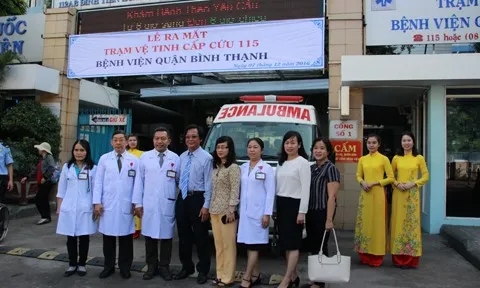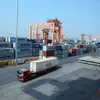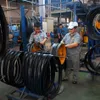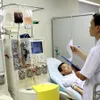Satellite emergency stations saving lives


|
| A new model that sets up satellite emergency stations in all HCM City districts has helped saved many lives, both accident victims and seriously ill patients, over the last two years. — Photo congan.com.vn |
HCM CITY – A new model that sets up satellite emergency stations in all HCM City districts has helped saved many lives, both accident victims and seriously ill patients, over the last two years.
The satellite emergency stations, functioning under district-level hospitals, have proven particularly useful in instances where there was not enough time to rush seriously injured accident victims or seriously ill patients to hospitals because of traffic congestion, a review conference heard last week.
The new model was applied after it was seen that the municipal 115 Emergency Centre, set up in 2013, was unable to fulfill its duties properly because of poor infrastructure and personnel shortages.
In response, the city’s Health Department decided to apply an out-of- hospital emergency service that had proved effective in several developed countries.
Doctor Tăng Chí Thượng, deputy director of the city’s Health Department, said they had studied the model and applied “local specific characteristics” in deploying the satellite emergency stations in districts.
These stations have been able to make full use of their human sources to rescue victims in the quickest possible way, taking advantage of the "golden time in treatment,” typically providing first aid no more than 5 minutes after receiving information, he said.
The satellite emergency stations need the co-operation and medical intervention of many health professionals from the city’s leading hospitals in order to save victims in very serious conditions.
Doctor Đỗ Thành Tuấn, head of the District 4 General Hospital, which also plays the role of a satellite emergency station, said their emergency ward received 70-80 patients from both District 4 and neighboring areas every day.
“Our doctors and medical workers have saved many people who were in critical condition before being hospitalised,” Dr Tuấn said.
"District 4’s network of narrow alleys is an obstacle course for medical workers and ambulances to reach the scene in the case of emergency. Therefore, carrying out emergency operations at a satellite hospital becomes necessary to take advantage of the golden time… .”
Dr Lê Hoàng Quý, deputy head of the Bình Thạnh District General hospital- a satellite emergency station, said they had to arrange doctors and medical workers into two first-aid shifts operating around the clock, with each shift having two doctors, four nurses and an ambulance driver.
Whenever the hospital received an emergency call, an ambulance with qualified medical workers quickly left for the scene to help victims as fast and as safely as possible.
At the same time, the hospital has set aside at least 18 beds for patients in critical situations if the number of victims is higher.
Dr Quý said surgeons were always ready to assist medical workers at emergency stations to tackle complicated cases, adding that about 30 beds were prepared for emergency cases a day.
‘Initial results’
The city’s Health Department has asked district-level hospitals to enroll as satellite emergency stations, deputy director Tăng Chí Thượng said.
As a satellite station, the hospital will be fully responsible for the preparation of adequate infrastructure, qualified ambulances and medical workers.
So far, the city has 21 satellite emergency stations, and expects all inner and outskirts districts to have at least one such station this year to respond when people call 115.
The department has recorded that the number of calls made to 115 increased to 11,854 in the first 10 months of 2016, compared to 6,805 in 2014, demonstrating increased confidence in the emergency service.
At least 30 people in critical condition have been saved.
In particular, six patients were saved by timely surgical intervention at district-level hospitals last year. Dr Tăng Chí Thượng said the risk of death would have been very high if patients had been moved to the city’s leading hospital, as was done earlier.
To develop the 115 Emergency Centre, Thượng said he had submitted to the municipal administration a project to train medical workers for out-of-hospital emergency services.
He also proposed that the city authorities invest more in infrastructure for the 115 Emergency Centre, especially in an automatic control system. — VNS
Tags:





